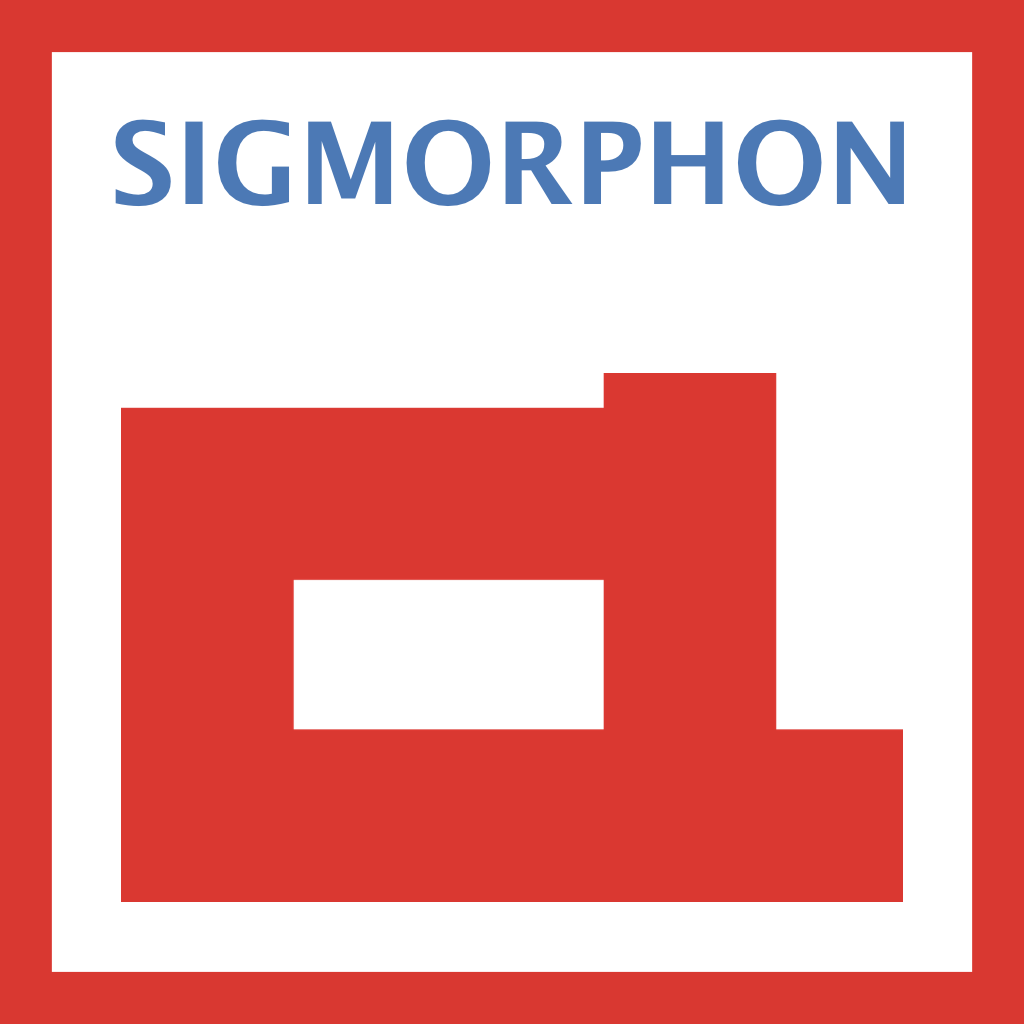Seventeenth SIGMORPHON Workshop on Computational Phonology, Morphology, and Phonetics
All times are Pacific Daylight Time (UTC-7)
Workshop to be held online on July 10, 2020
8:25-8:30 Opening Comments
8:30 - 10:30 - Morning Session
-
8:30 - 9:30 - Invited Talk - Understanding Character Models for Representing Morphology
Clara Vania, NYU
-
9:30 - 10:30 - Invited Talk - Recursive Schemes for Phonological Analysis
Jane Chandlee, Haverford College
10:30-10:45 - Morning Break
10:45 - 12:30 - Shared Task Session
-
10:45 - 11:00 - SIGMORPHON 2020 Shared Task 0: Typologically Diverse Morphological Inflection
-
11:00 - 11:15 - The SIGMORPHON 2020 Shared Task on Multilingual Grapheme-to-Phoneme Conversion
-
11:15 - 11:30 - The SIGMORPHON 2020 Shared Task on Unsupervised Morphological Paradigm Completion
11:30 - 12:30 - Shared Task Poster Session
-
One-Size-Fits-All Multilingual Models
-
Ensemble Self-Training for Low-Resource Languages: Grapheme-to-Phoneme Conversion and Morphological Inflection
-
The CMU-LTI submission to the SIGMORPHON 2020 Shared Task 0: Language-Specific Cross-Lingual Transfer
-
Grapheme-to-Phoneme Conversion with a Multilingual Transformer Model
-
The NYU-CUBoulder Systems for SIGMORPHON 2020 Task 0 and Task 2
-
The IMS–CUBoulder System for the SIGMORPHON 2020 Shared Task on Unsupervised Morphological Paradigm Completion
-
SIGMORPHON 2020 Task 0 System Description: ETH Zürich Team
-
KU-CST at the SIGMORPHON 2020 Task 2 on Unsupervised Morphological Paradigm Completion
-
Low-Resource G2P and P2G Conversion with Synthetic Training Data
-
Frustratingly Easy Multilingual Grapheme-to-Phoneme Conversion
-
Exploring Neural Architectures And Techniques For Typologically Diverse Morphological Inflection
-
University of Illinois Submission to the SIGMORPHON 2020 Shared Task 0: Typologically Diverse Morphological Inflection
-
One Model to Pronounce Them All: Multilingual Grapheme-to-Phoneme Conversion With a Transformer Ensemble
-
Leveraging Principal Parts for Morphological Inflection
-
Linguist vs. Machine: Rapid Development of Finite-State Morphological Grammars
-
CLUZH at SIGMORPHON 2020 Shared Task on Multilingual Grapheme-to-Phoneme Conversion
-
The UniMelb Submission to the SIGMORPHON 2020 Shared Task 0: Typologically Diverse Morphological Inflection
-
Data Augmentation for Transformer-based G2P
12:30 - 14:00 - Lunch
14:00 - 15:06 - Paper Session
-
14:00 - 14:10 Transliteration for Cross-Lingual Morphological Inflection
-
14:11 - 14:21 Evaluating Neural Morphological Taggers for Sanskrit
-
14:22 - 14:32 Getting the ##life out of living: How Adequate Are Word-Pieces for Modelling Complex Morphology?
-
14:33 - 14:43 Induced Inflection-Set Keyword Search in Speech
-
14:44 - 14:54 Representation Learning for Discovering Phonemic Tone Contours
-
14:55 - 15:05 Joint learning of constraint weights and gradient inputs in Gradient Symbolic Computation with constrained optimization
15:06 - 15:30 - Best Paper Session
-
15:06 - 15:18 Best Paper Runner-up In search of isoglosses: continuous and discrete language embeddings in Slavic historical phonology
-
15:18 - 15:30 Best Paper Winner Multi-Tiered Strictly Local Functions
15:30 - 16:00 - Afternoon Break
16:00 - 18:00 - Afternoon Session
-
16:00 - 17:00 - Invited Talk - Inflectional data science and human/computer-aided linguistic analysis
Robert Malouf, San Diego State University
-
17:00 - 18:00 - Invited Talk - Modeling failure in morphophonological learning
Bruce Hayes, UCLA
